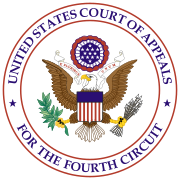Poyner v. Commissioner
| Poyner v. Commissioner | |
|---|---|
 | |
| Court | United States Court of Appeals for the Fourth Circuit |
| Full case name | Ernest L. Poyner, et al v. Commissioner of Internal Revenue |
| Argued | November 21, 1961 |
| Decided | March 21, 1962 |
| Citations | 301 F.2d 287 (4th Cir. 1962) 62-1 USTC (CCH) ¶ 9387 |
| Court membership | |
| Judges sitting | Simon Sobeloff, Morris Ames Soper, J. Spencer Bell |
| Case opinions | |
| Majority | Sobeloff, joined by Soper, Bell |
| Laws applied | |
| Internal Revenue Code | |
| Keywords | |
Poyner v. Commissioner 301 F.2d 287 (4th Cir.1962)[1] is a United States tax law case that discusses whether "special death benefits" paid to an employee's widow are exempt from taxes as a gift under §102(a).
It produces five factors as a pertinent test:
(1) whether the payments were made to the spouse of the deceased shareholder, not to his estate;
(2) whether the payor had been under no obligation to make the payments and had, in fact, decided on previous occasions not to make payments to persons qualified;
(3) whether the company derived benefit of an economic nature from the payments;
(4) whether the recipient had ever performed any services for the company;
(5) whether the services of the deceased employee had been fully compensated during his lifetime.
Citations
[edit]- Commissioner v. Duberstein, 363 U.S. 278 (1960)
- United States v. Kaiser, 363 U.S. 299 (1960)
- Bogardus v. Commissioner, 302 U.S. 34 (1937)
- Simpson v. United States, 261 F.2d 497 (7th Cir. 1958)
- Bounds v. United States, 262 F.2d 876 (4th Cir. 1958)
References
[edit]- ^ Poyner v. Commissioner, 301 F.2d 287 (4th Cir. 1962).
External links
[edit]- Text of Poyner v. Commissioner, 301 F.2d 287 (4th Cir.1962) is available from: CourtListener Justia OpenJurist Google Scholar
